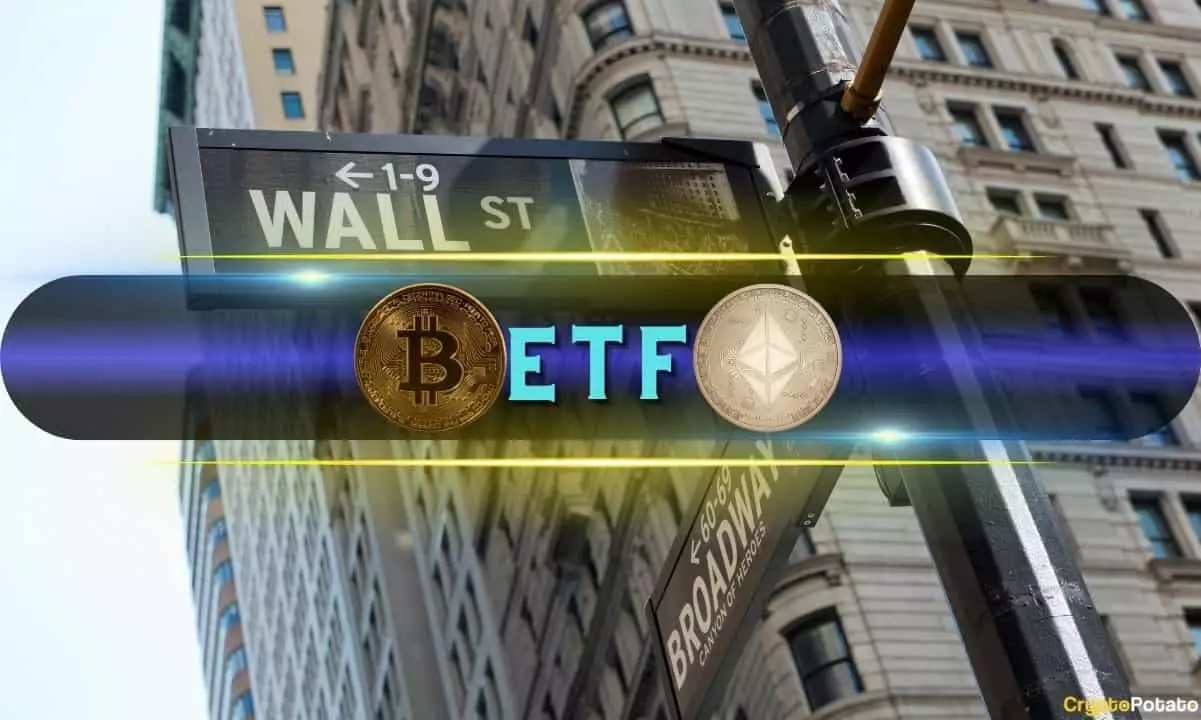The recent trading week has marked a pivotal moment for Bitcoin Exchange-Traded Funds (ETFs) in the United States, where they achieved remarkable inflows despite the ongoing debate surrounding the cryptocurrency market. Following a significant political shift with Donald Trump’s victory in the 2024 presidential elections, Bitcoin ETFs capitalized on the renewed investor sentiment, witnessing daily inflows that totaled an impressive $3.35 billion by the end of the week. This phenomenon was particularly noteworthy given the general volatility associated with cryptocurrency investments.
The week kicked off with a modest inflow of $254.8 million on Monday, a sign that investors were cautiously optimistic regarding the future of Bitcoin. However, by Tuesday, enthusiasm ramped up significantly as investors began pouring in $829.5 million into Bitcoin ETFs. The momentum continued to build, capped by a staggering inflow on Thursday that crossed the billion-dollar mark, demonstrating the market’s quick recovery and increasing confidence in Bitcoin as a secure investment. The standout performance was primarily attributed to BlackRock’s IBIT, which emerged as the flagbearer of significant gains, attracting substantial inflows across multiple days.
The inflows into Bitcoin ETFs mirrored a sharp increase in Bitcoin’s market price. Throughout the week, Bitcoin’s value soared from around $90,000 to an impressive $99,825 on platforms like Bitstamp. Investors’ eagerness to secure Bitcoin coincided with the ETFs’ rising appeal, almost propelling the cryptocurrency into six-figure territory. This remarkable uptick in price not only reflects the growing institutional interest but also underscores the vital role that ETFs play in establishing Bitcoin as a mainstream financial asset.
As BlackRock’s IBIT topped $31 billion in assets under management (AUM), the ETF’s performance has solidified its status in the investment realm. Fidelity’s FBTC and Ark Invest’s ARKB also recorded substantial inflows, further validating the market’s bullish sentiment toward Bitcoin during this period.
While Bitcoin ETFs basked in the glow of success, Ethereum ETFs faced a more sobering reality. The five-day trading span revealed a disappointing pattern of outflows, particularly alarming given that Ethereum had previously shown signs of resilience. Daily losses spanned from $39.1 million to $81.3 million throughout the week, culminating in a total net outflow of $68.4 million. Investors seemed to lose confidence in Ethereum funds amid an overall bear phase for the asset class after the brief optimism following the election.
Despite the adverse conditions faced by Ethereum ETFs, the cryptocurrency itself experienced a modest uptick in value, gaining about 10% throughout the week. By the end of the week, Ethereum was trading slightly above $3,400. This juxtaposition begs an essential question: what is causing the rift between the performance of Bitcoin and Ethereum in the ETF landscape?
The stark difference in performance between Bitcoin and Ethereum can be attributed to several factors. Firstly, Bitcoin has materially established itself as a digital gold, appealing to investors seeking safe-haven assets amidst macroeconomic uncertainty. Conversely, Ethereum has been increasingly scrutinized, especially regarding scalability issues and the competition posed by other blockchain platforms. This divergence in perception likely compounded the inflow and outflow patterns seen in their respective ETFs.
Moreover, the aftermath of the elections might have predisposed investors to favor Bitcoin over Ethereum, viewing the former as a more stable investment. BlackRock’s success in launching thumping inflows for Bitcoin while Ethereum struggled under the weight of outflows suggests a firm delineation in how these two cryptocurrencies are viewed by retail and institutional investors alike.
The past week has dramatically illustrated the divergent trajectories of Bitcoin and Ethereum ETFs amidst a changing political and economic landscape. While Bitcoin has seized an opportunity to propel itself to new heights, Ethereum’s struggle reflects broader concerns about its long-term viability in an increasingly competitive market. As we look ahead, the contrasting narratives of these two leading cryptocurrencies continue to unfold, keeping investors on their toes in a market that thrives on volatility and evolving sentiment. With the cryptocurrency ecosystem in continual flux, both Bitcoin and Ethereum will need to adapt strategically if they hope to attract sustained investment and regain momentum.

